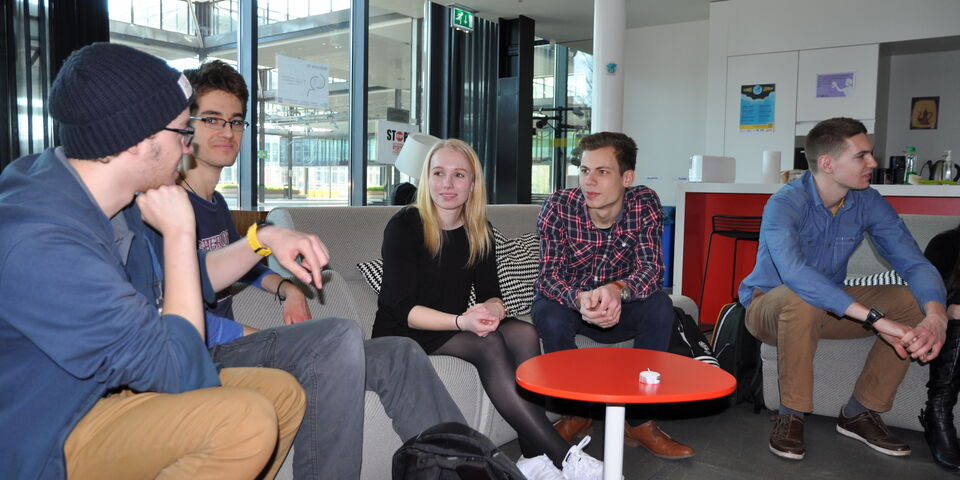Why don´t the Dutch make more of an effort over their meals?
What makes Dutch people tick and why don’t they want to have a congenial meal with you? On Thursday afternoon DPO internationalization officer Willem van Hoorn tried to explain these and other cultural matters to the participants in the workshop ‘Dutch culture’. It was organized by international student association Cosmos as one of its lustrum activities. Ten students and PhD candidates, mainly from Eastern European countries, are making an effort to understand the Dutch culture.
In addition to a scientific approach to the theme, Willem van Hoorn also gives personal advice to the participants in the workshop about 'Dutch culture'. He sets their mind at ease several times when explaining an idiosyncrasy of 'the Dutch'. “For instance, if you are not invited to come to a Dutch colleague’s home, it does not mean they don’t like you. The simple truth is that Dutch people like to keep work and private life quite separate. Only seldom will their friends and colleagues meet each other.”
He has the participants complete a questionnaire about education, work ethic, social control and such. This way their own opinions are compared with the cultural model of professor Geert Hofstede. Hofstede, originally a Delft mechanical engineer, is an organizational psychologist of international renown. He developed cultural profiles for many countries and Van Hoorn distributes copies of this model.
Hofstede labels the Netherlands as a highly individualistic society. “You see that we are strongly task-oriented, adopt an independent attitude and behave competitively”, says Van Hoorn. “This approach is even applicable to our food; does this food give us enough fuel to get through the next few hours? Eating hardly has a social function.”
The pattern of ‘cultural adaptation’ is discussed also. The long and short of it is that someone who ends up in another culture is initially quite satisfied. This is comparable to a tourist or someone on a honeymoon. However, after reality starts to sink in, a feeling of helplessness may occur.
Mete Sevinc, a Turkish PhD candidate at Industrial Engineering, recognizes this. He notices that Dutch colleagues focus strongly on their work. When he wants to say that he is not feeling very good, they want to discuss his research results with him. Van Hoorn nods with understanding and advises him to discuss those feelings with other international co-workers. “They will probably recognize your situation better.”
Fortunately for the Turk the curve of cultural adaptation starts to go up again once a certain degree of habituation has occurred and later even some more grip on the situation is experienced. He can laugh at it and hopes that it will not take too long.
The internationals that are planning to return to their native countries are warned by Van Hoorn for the re-entry shock. “When you go back, you will have changed as a result of your experiences. Your home front has not changed, though. That may be awkward.”
Finally, Van Hoorn asks about the characterization of the Dutch which the participants had to write down in groups two hours earlier. “They are in your face and very strongly oriented towards their job”, says the Lithuanian chairwoman of Cosmos, Emilija Lazdanaitė, to begin with. Sevinc adds: “Politically correct, oriented towards innovations and technology, individualistic and frugal. And food sucks.”
For its first lustrum week, Cosmos has organized an Indonesian, Russian and Romanian night and several workshops, among other things. It will close the week on Sunday - with a Zumba marathon.


Discussion